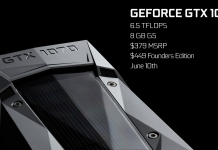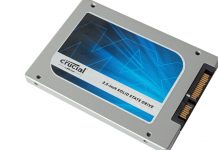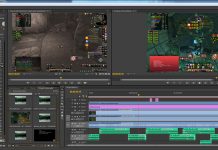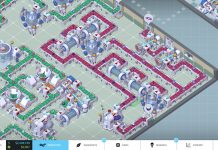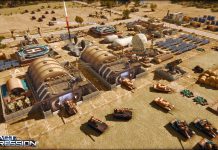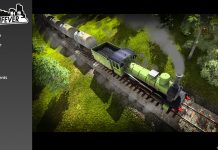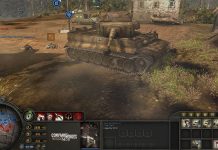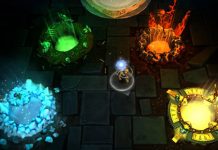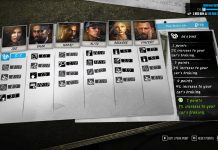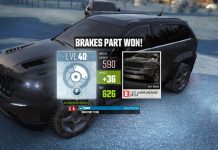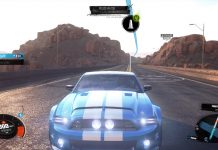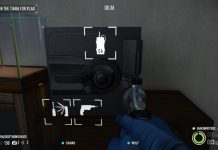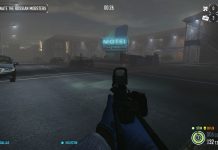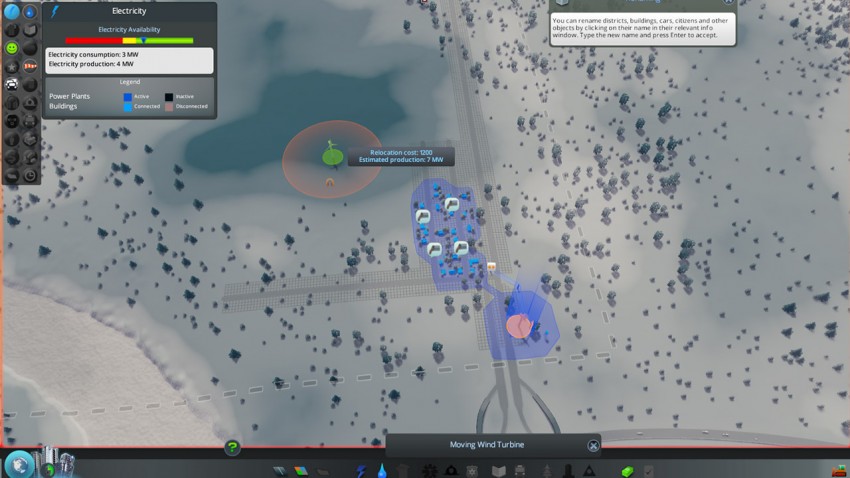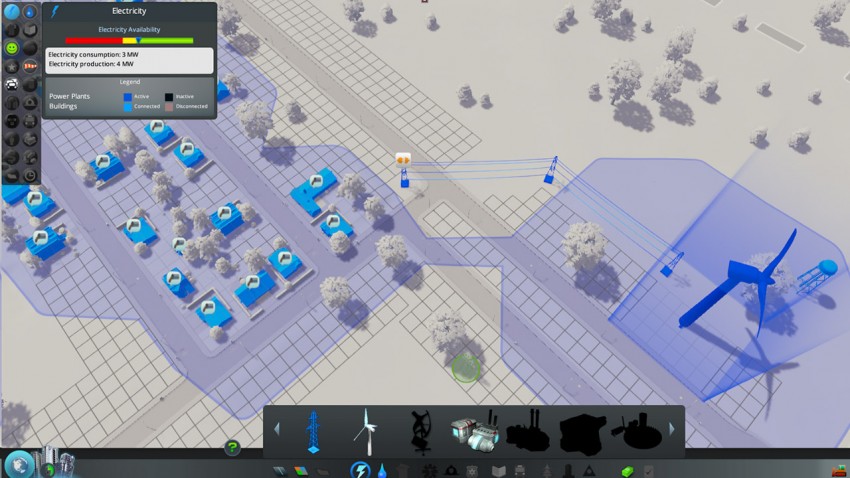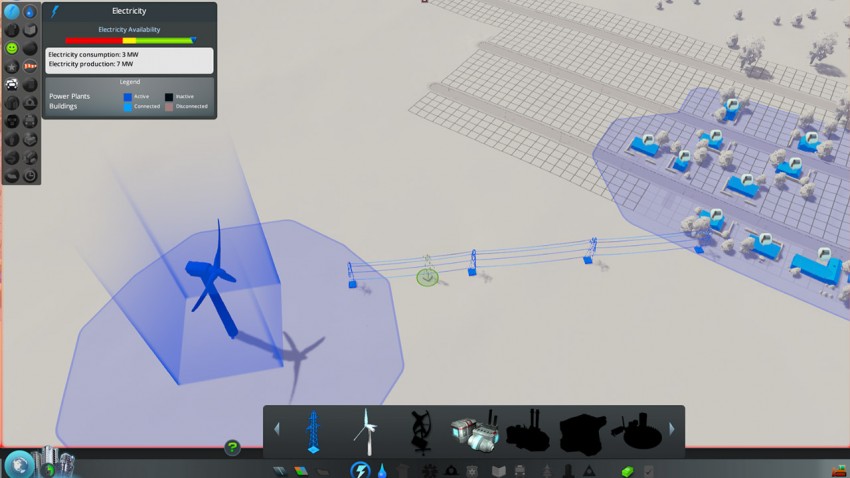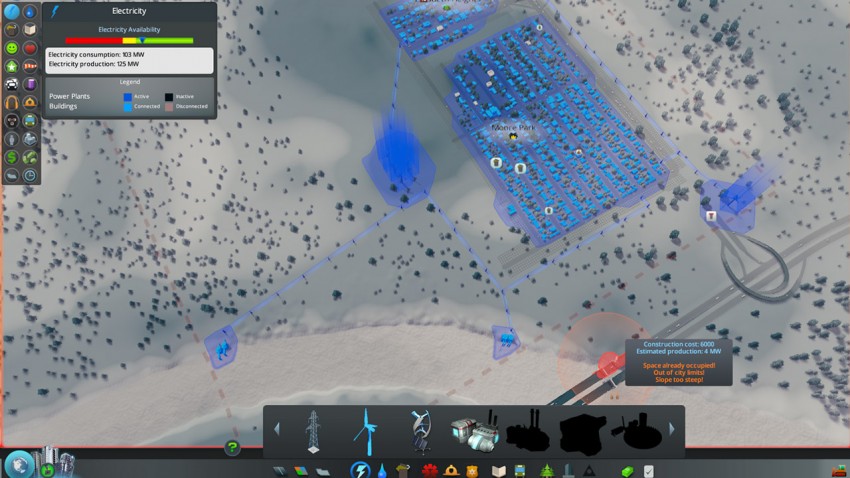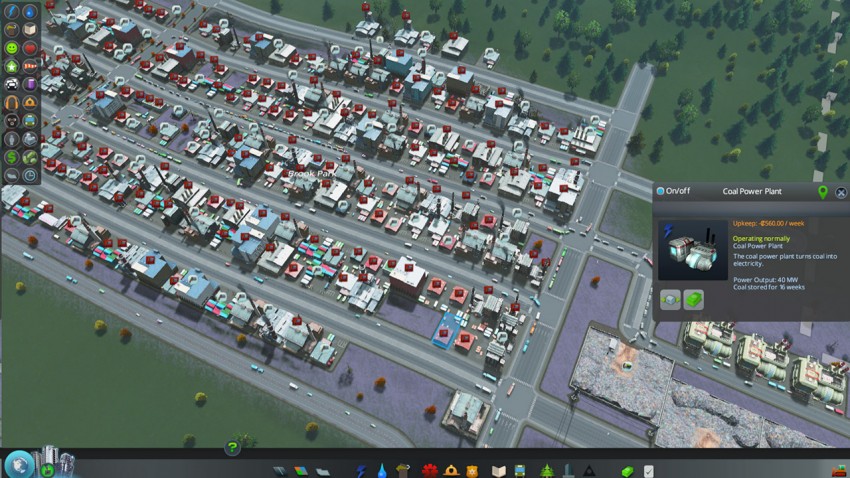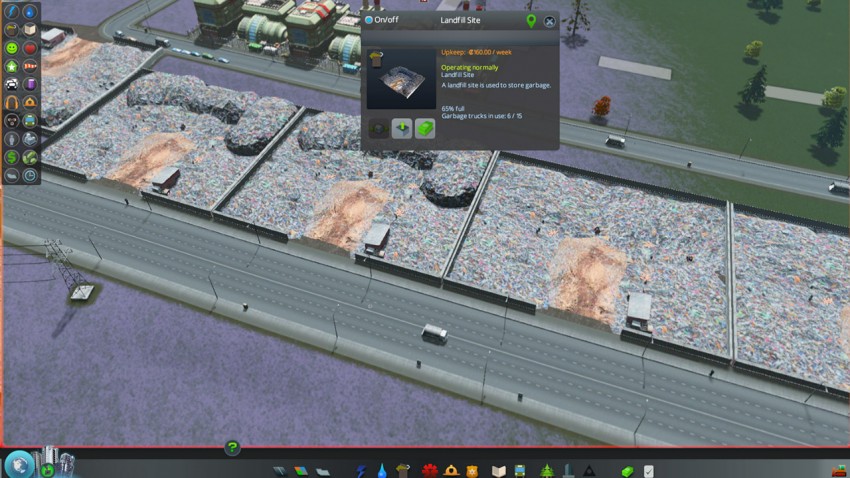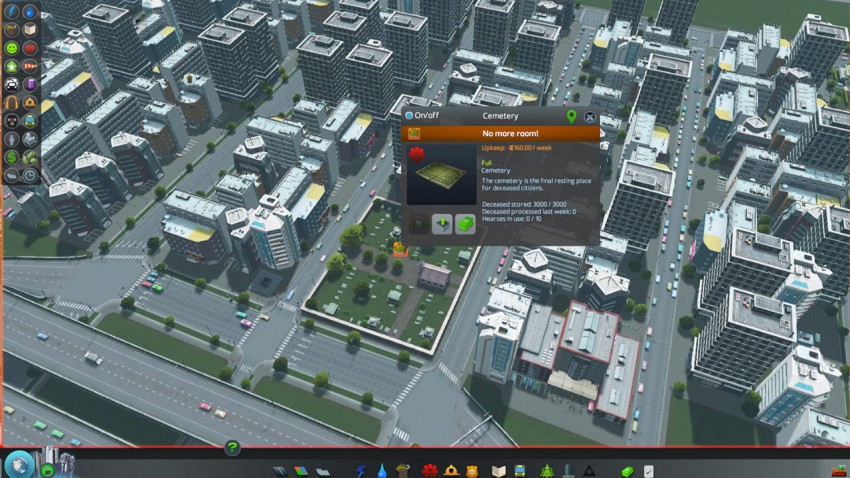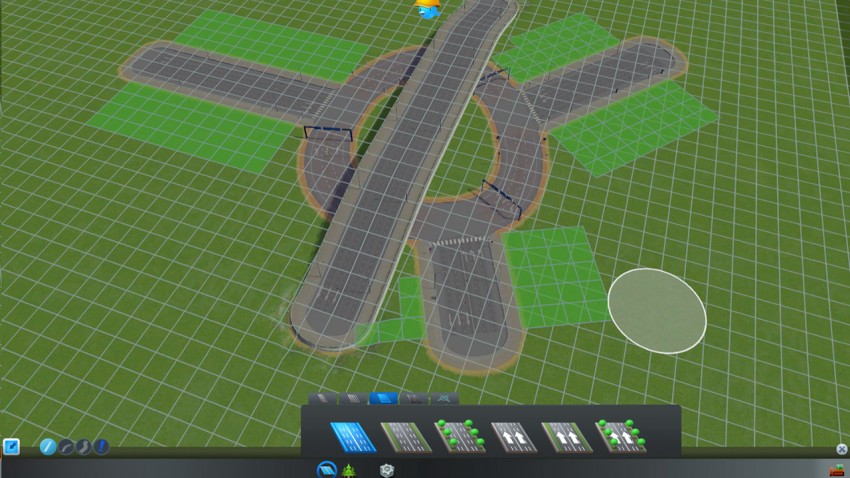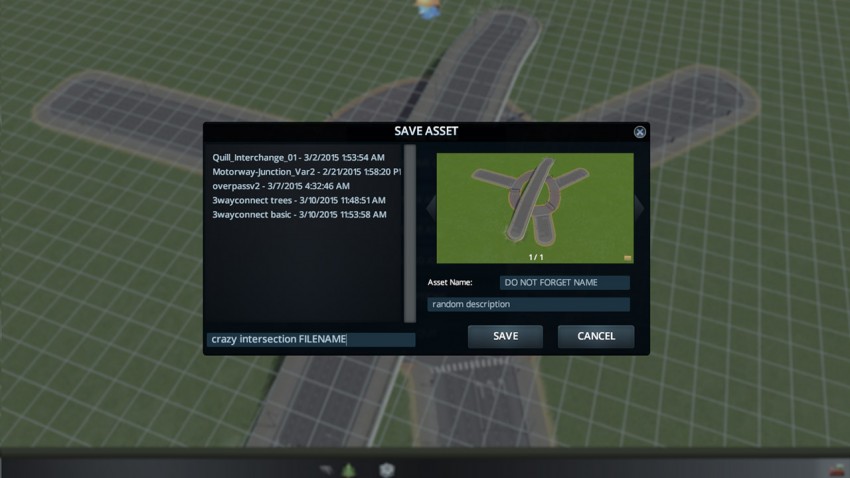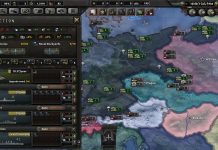Introduction
[postad]Hi there! Thanks to Paradox interactive I have been playing the latest city builder Cities Skylines for the last few days. Cities Skylines is an interesting game that is pretty accessible compared to some of its competitors. However there are a few things that might not be immediately clear or that can even allow you city to perish in a few minutes.
Obviously this guide is a work in progress but I hope it will allow you to avoid some of the mistakes I made! The chapters in this guide appear in the order they are presented in-game.
Zoning
Just like in the famous SimCity series you will need to designate land for your citizens to construct housing on. In Cities Skylines zoning is completely free but the roads are very expensive! So do not go crazy on laying roads. Make sure you take care of your essential first.
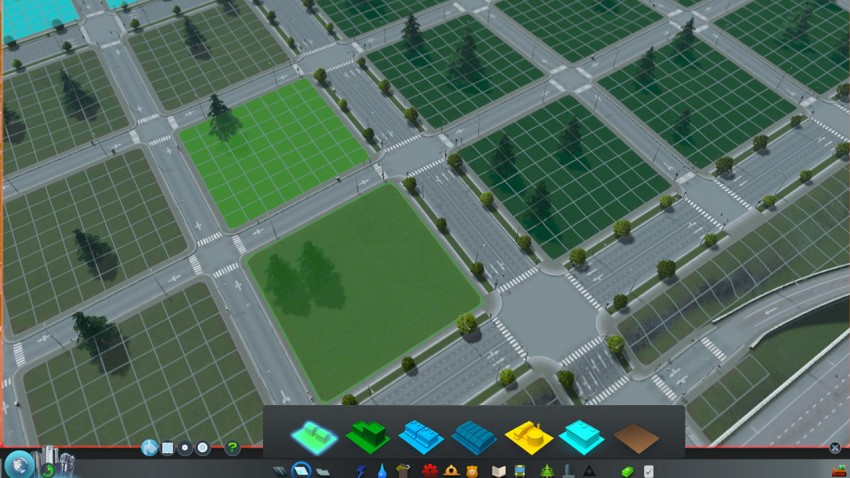
Recommendation: Zoning can only be achieved on the white squares that appear next to roads, but do not build too many roads at first. All roads have a maximum range of 4 squares. You can read more about Residential zones here: Cities Skylines Guide – How residential zones work.
Power and Wind
At the start of the game you can choose between a Wind Turbine and a Coal Power Plant.
Recommendation: The Coal Power plant is too expensive at the start of the game (19.000 vs 6.000) so really the Wind Turbine is your only option! Want to know more about different power options in Cities Skylines? Checkout this guide: Cities Skylines Guide – Electricity and the best power plants!
Wind levels
Wind Turbines require Wind in order to generate electricity. Therefore the output in MW is not fixed like in a coal power plant. Instead the efficiency is determined by the wind map resulting in 1-8 MW of power produced.
The Wind Turbine on the bottom right is only producing 4 MW. I should have placed it in the darker zone where it would yield 7 MW. Luckily you can relocate buildings!
Recommendation: Try to position Wind Turbines in the dark blue zones
Windmills and noise pollution: Plan ahead
In Cities Skylines some buildings and traffic generate noise pollution. Noise pollution will lower health and happiness of your citizens. Therefore you need to plan ahead.
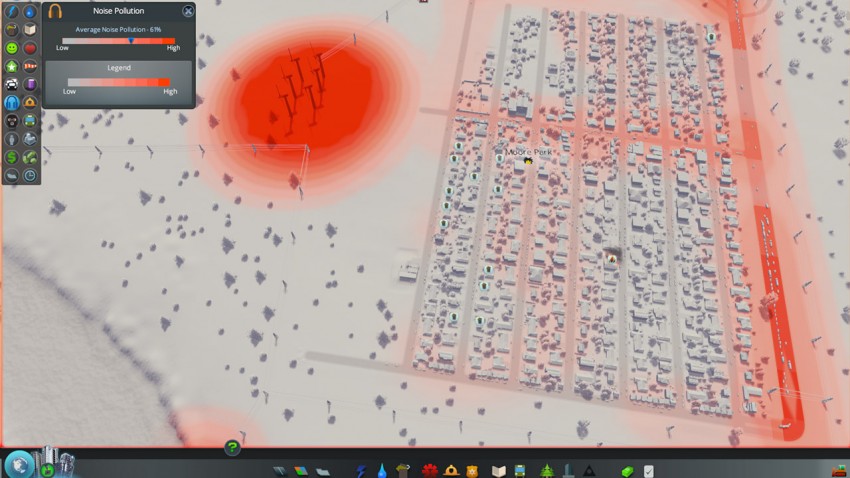
Recommendation: At 6+ MW a Wind Turbine it is more cost efficient than a coal power plant, so use them when you can!
Power lines
Power lines can be a bit confusing at first. Basically all buildings emit a blue power zone. Buildings close to each other will create a single zone. Power lines will need to be constructed to connect different zones together. Let’s take a look:
In this example the power line is not correctly placed for two reasons:
- The yellow sign shows it is not connected to a zone (meaning you have to place it INSIDE the other blue zone)
- The power line is not needed because the houses already joined the same power zone as the wind turbine
Instead power lines should be constructed like this:
Recommendation: Always create multiple links between important zones. Constructing roads can automatically demolish power lines. If you forget the connection to your water pumps your entire city could be left without water.
Water and Sewage
When you construct your first Water pipe you will notice it has two lanes. Like in any city builder water pipes are used to supply fresh water to your citizens. This means you must connect them to a Water Tower or Water Pumping station.
Now here is something new: The other lane is used to transport sewage. Although you might not like it you will have to dump your waste into the nearest river!
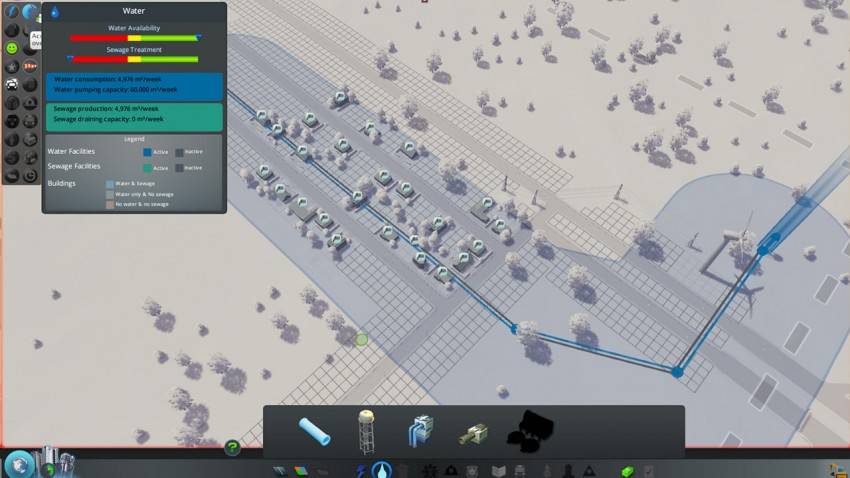
Water pump placement and Water pollution
Keep in mind that using a Water Drain Pipe or Water Treatment Plant pollutes the river water. Rivers always move into one direction (downstream). Therefore you must make sure your water pumps are located upstream relative to the sewer system. If you fail to do that your citizens will become ill.
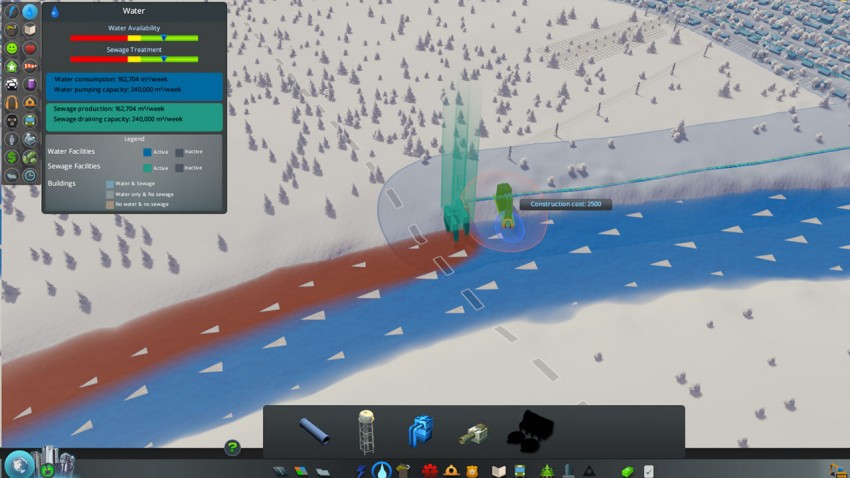
Water Tower
At €3500 with €240 upkeep it produces 60.000 m3 of fresh water. Therefore it will cost about €4 per 1K of water. It does not need a road connection and it can be built pretty much anywhere
Water Pumping Station
At €2500 with €240 upkeep this building produces 120.000 of fresh water. Therefore it will cost about €2 per 1k, making it twice as efficient as the water tower. It is also cheaper to construct. The only downside is that it needs to be constructed on a river bed.
Water Drain Pipe
Costs €2500 with an upkeep of €320. It can drain 120.000 m3 sewage and uses 240 KW.
Water Treatment Plant
Costs €15000 with an upkeep of €640. Can drain 160.000 m3 sewage and uses 480 KW. This building reduces water pollution by 85%.
Recommendation: Skip the water tower and only use pumping stations. Also make sure you plan your sewage drain pipes properly. Meaning you should reserve fresh water space for at least 5-6 pumping stations.
Garbage disposal: Failing is game over
In Cities Skylines buildings produce garbage that needs to be disposed of. Garbage trucks pass each individual building to collect garbage. After a few buildings they are full and will return to their landfill or incinerator. Due to this mechanic Garbage disposal is a strain on road network and trucks can be delayed by traffic. Garbage collection will be unlocked at 500 inhabitants.
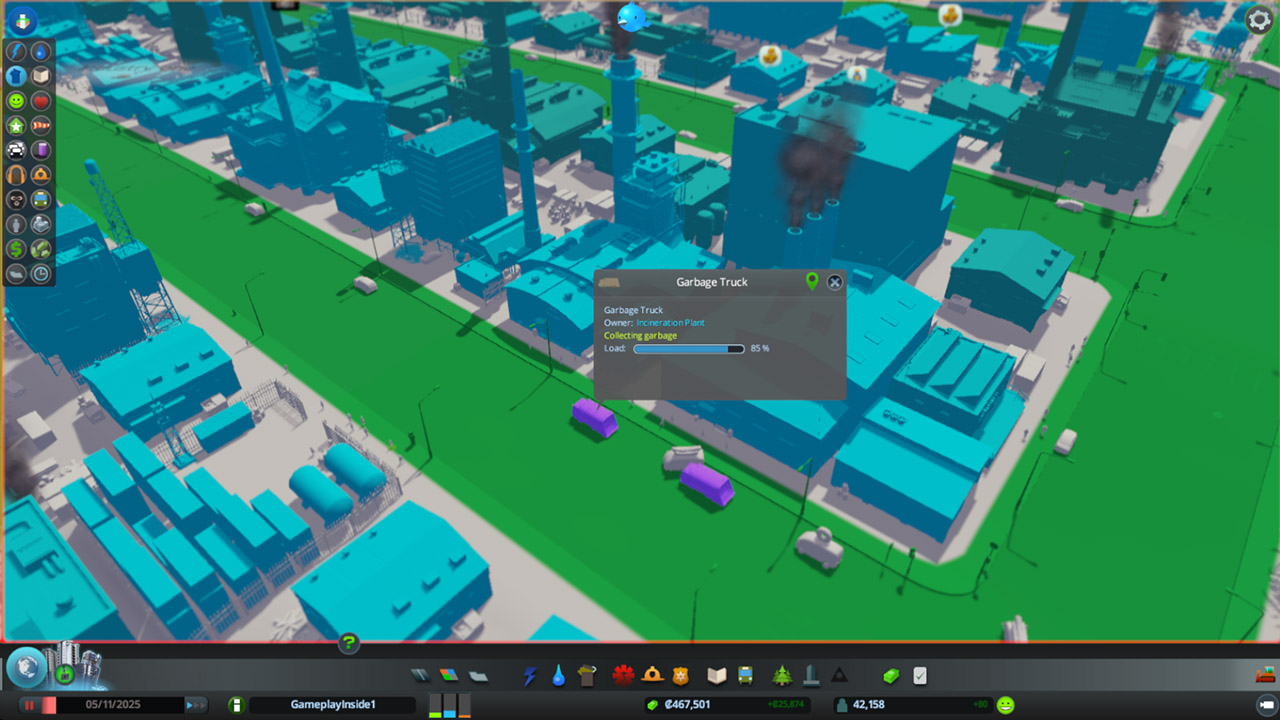
A garbage truck is collecting trash. The brighter blue the building the lower the amount of accumulated garbage.
When garbage fails things go to sh*t.
The first thing you should realize is that when you properly fail garbage handling you will encounter a catastrophic failure and everyone will leave your city in a very short timeframe. This will quickly result into losses because you have zero income. After a few weeks you can actually go bankrupt.
In this screenshot all buildings marked red will soon abandon. They already stopped paying taxes reducing the in-game balance from +€10.000 to +€445. Ouch!
Recommendation: Do not force 75 garbage trucks over one direction road layout. Be aware of the impact on your roads!
Landfill
At 500 inhabitants the landfill will unlock as the first garbage disposal option. This building will send out up to 15 trucks to gather garbage. This will only be sufficient for very small cities so expect to construct multiple landfills so you have enough trucks to drive across town.
This “busy town” of 6722 inhabitants required 5 landfills.
Keep in mind that a landfill can only be relocated once completely empty. The building comes with a button to accomplish this. However this will unleash the full force of its 15 trucks. An easy mistake to make here is forgetting to create a turning point. Without it trucks will move from A to B and then have to cross all the way over town to return to the first landfill.
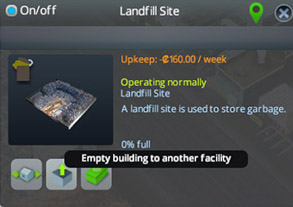
Recommendation: Reserve space for at least 3 landfills and realize they can only be moved when empty.
Incinerator
At 7500 inhabitants (Big Town) you will unlock the Incineration plant. This building has a few advantages of over the traditional landfill
- It actually burns garbage instead of storing it
- It can spawn up to27 garbage trucks instead of just 15
- It can provide 12MW of power (almost 2x a windmill)
- You can empty landfills into incinerators
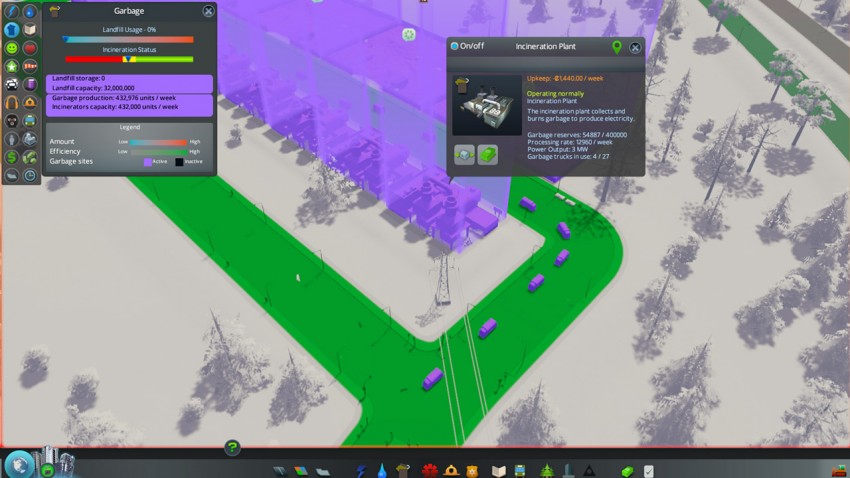
If you check the garbage overlay you can try to balance the number of incinerators required.
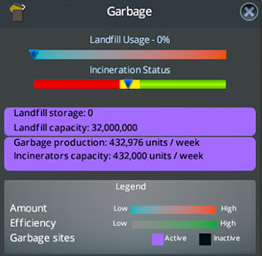
Recommendation: The larger your city gets the more troublesome landfills become. They simply take up too much space. Switch to Incinerators when you can afford to. They use less space and provide more trucks.
Health care: don’t go big
When citizens become ill they require health care. To receive health care they must be picked up by an ambulance and brought the nearest facility. Because ambulances use the roads they suffer from traffic congestion. This also means that one way roads can severely limit the efficiency of your facilities.
Medical clinic
For $10.000 with $ 400 upkeep it can send out 8 ambulances and “store” up to 100 patients. Meaning it will cost you €50 per ambulance or €4 per bed. The range is about a single tile (2km x 2km). A single medical clinic should be enough up to 11.000 citizens.
Hospital
For 65.000 with 2400 upkeep this bad boy can send out 25 ambulances and handle up to 500 patients. Therefore it will cost you €96 per ambulance or €4.8 per bed. The range is about twice that of the medical clinic (about 1.5-2 tiles). Although it looks cool a combination of 4 local medical clinics is usually far more efficient in terms of costs, range and response time.
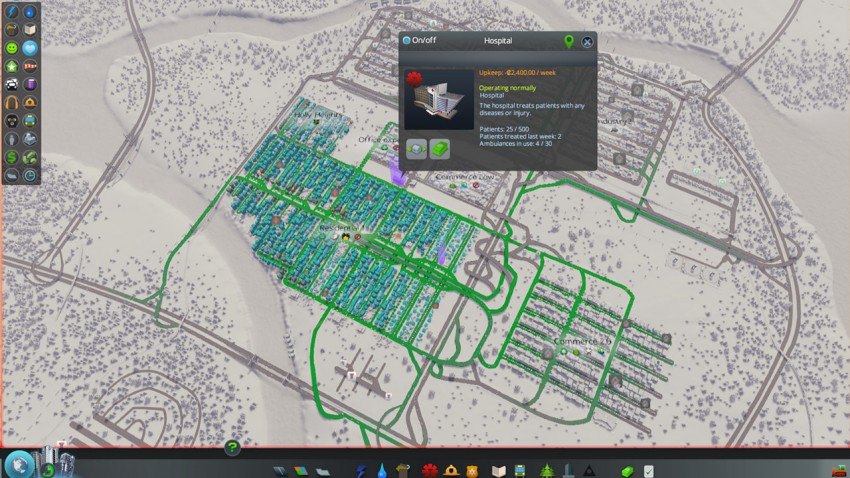
Recommendation: Health care is not something you have to worry about much in my experience. A single medical clinic will provide plenty of coverage. When your city grows you can consider upgrading to a hospital because it will save some space.
Death care
Now here is something new! Eventually citizens will die and they need to be ‘dealt with’. Just like ambulances drive across town in an attempt to save people the Hearse will collect the dead and bring the citizen to their final resting place. It will take 2 days to “load” a dead citizen.
Death care is a big deal in Cities Skylines. When you experienced a period of large growth followed by stagnation large parts of your population reach their maximum lifespan at the same time. Therefore all over your city people will die and each death requires a Hearse. I am currently using 8 crematoriums and 2 cemeteries on 40.000 citizens.
Cemetery
For €3000 and €160 upkeep this building can store 3000 ‘patients’ and send out 10 hearses. Keep in mind that it can only be relocated once completely empty. There is an option to empty the cemetery into another cemetery. So basically it has the same functionality as the landfill (no disrespect intended, it is how the game works).
Crematorium
For €25.000 and €720 upkeep your citizens can be cremated. This building can store up to 105 deceased but will also process them. It can send out only 7 hearses.
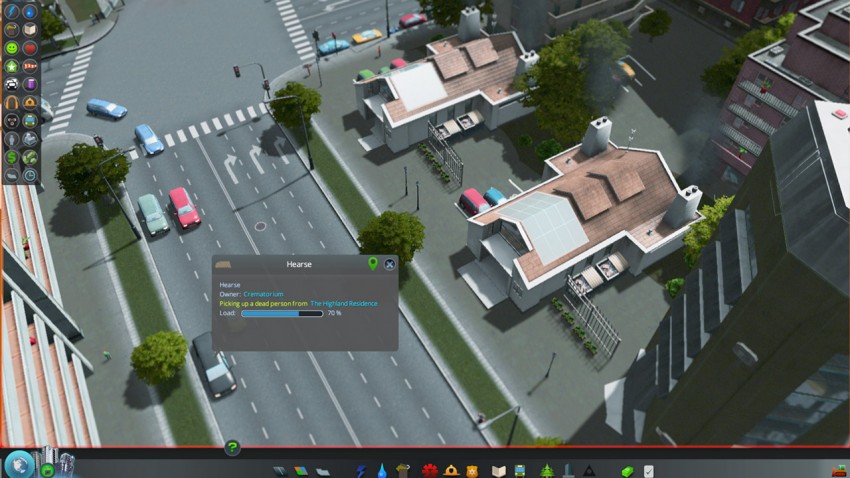
Recommendation: So far it looks like not everyone likes to be cremated so you will always need a cemetery. Spread your crematoriums across the city to avoid traffic congestion caused by hearses. Do not forget that people can also die while working or shopping. So also cover commercial and industrial zones!
Practice using the Asset editor!
In City Skylines you can freely build complicated intersections because roads can be placed completely 3d including different height levels. Unfortunately roads are also extremely expensive. Demolishing a road when the game is paused will only result in a partial refund (75%). Therefore I recommend you save yourself time and start using the Asset Editor. Do not worry it is extremely simple!
Step 1: Launch the Asset editor
To launch he Cities Sklyines Asset editor go to Tools> Asset Editer> Temperate> New .
Step 2:
Once inside the Asset editor can construct roads like you would in-game:
Step 3: Save your asset.
When you are finished designing your “crazy” intersection you should go to the asset editor options and take a snapshot. After that press escape and save the asset!Do not forget to enter a filename, Asset name and description or you will see error warnings when you load your next game.
Questions?
Got questions or other remarks? Feel free to post in the comments below. It is possible that future chapters will be added.

